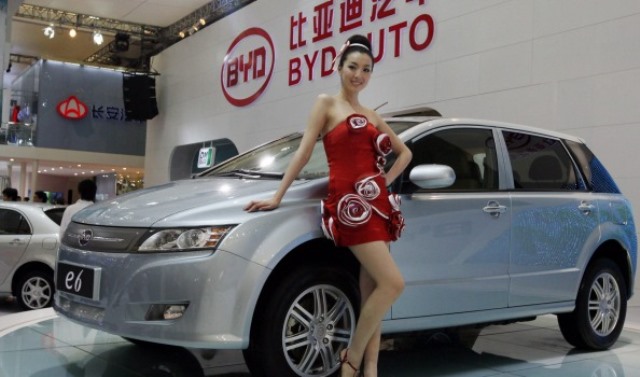China has revealed a substantial 520 billion yuan ($72.3 billion) plan on Wednesday to stimulate the sales of electric vehicles (EVs) and other eco-friendly cars over the next four years.
This move aims to bolster the weakening demand for automobiles and has resulted in a significant surge in automakers’ shares.
Anticipated due to the government’s earlier commitment to promoting the industry, this package comes at a time when the largest auto market globally is experiencing a decline in sales, raising concerns about the slowing economic growth following a strong start to the year.
New energy vehicles (NEVs) purchased in 2024 and 2025 will be exempted from the purchase tax, which can reach up to 30,000 yuan per vehicle, according to the Ministry of Finance’s statement.
This exemption will be halved for purchases made in 2026 and 2027. Vice Minister of Finance Xu Hongcai announced that the total value of tax breaks will reach 520 billion yuan during a press conference.
This measure builds upon the existing policy that grants NEVs, including battery electric vehicles (EVs), plug-in hybrids, and hydrogen fuel-cell vehicles, an exemption from purchase tax until the end of 2023.
“The four-year extension exceeded market expectations,” remarked Cui Dongshu, the secretary general of the China Passenger Car Association, adding that the costly extension of the exemption indicates that additional stimulus measures are unlikely.
The announcement follows a Cabinet meeting on June 2, during which authorities expressed their intention to extend and optimize the tax exemption while exploring policies to promote the development of NEVs.
In recent years, the government has advocated for NEVs as a means to reduce air pollution, providing incentives that supported the emergence of local players like Li Auto, NIO, and BYD.
NEV sales faced challenges earlier this year when the government ended a subsidy program for EV purchases that had been in place for over a decade. However, sales rebounded as automakers, including Tesla, reduced prices to defend their market share, aided further by the previous extension of the purchase tax exemption.
This latest announcement marks the fourth extension of the tax break, which was initially introduced in 2014 and subsequently extended in 2017, 2020, and 2022.
Susan Zou, vice president at research firm Rystad Energy, said this move will support the growth of EVs in China, predicting a 30 percent increase in EV sales by 2024, up from the estimated 15 percent growth for this year.
Data from the China Passenger Car Association revealed that NEV sales rose by 10.5 percent in May compared to the previous month, experiencing a substantial 60.9 percent surge compared to the same period last year, when auto production and sales were still impacted by COVID-19 restrictions.
Furthermore, the Ministry of Commerce recently announced a nationwide campaign to promote automobile purchases, demonstrating a significant effort to boost demand in the world’s largest auto market.

